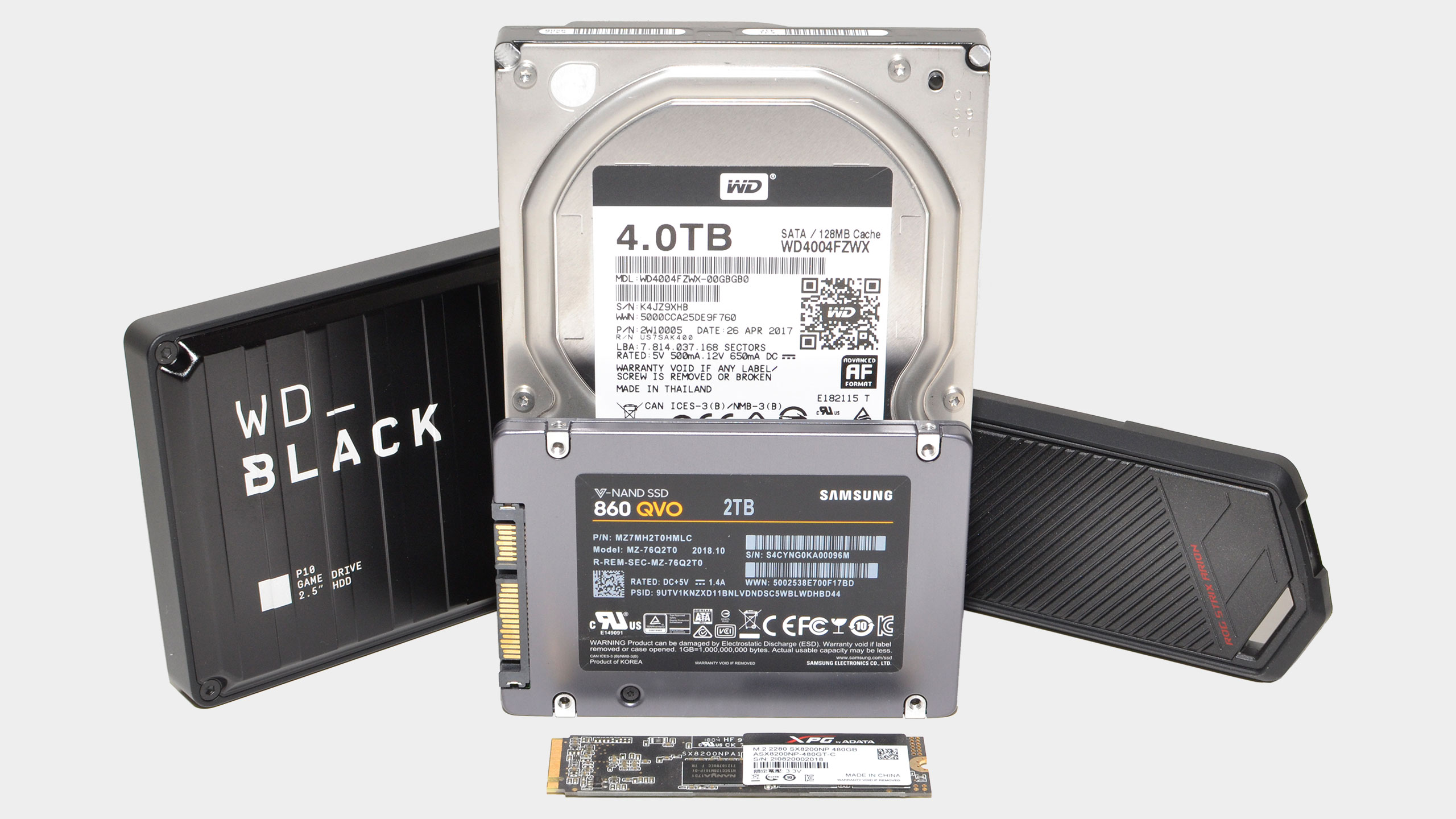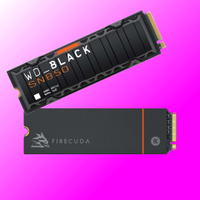You should run Windows 11 on an SSD whether Microsoft demands it or not
Hard drives can still have a place in your gaming PC, but not as the boot drive.

A report from a storage analyst firm Trendfocus (via Tom's Hardware) states that Microsoft is telling original equipment manufacturers (OEMs) to drop hard drives in favour of SSDs by 2023 for new machines running Windows. The reasoning is straightforward enough: to make for a better end-user experience, something that plenty of us are all too aware of. Still, there has been something of a pushback to the idea.
You may not think the switch is such a big problem, but as ever it comes down to money. Switching generally means dropping from a 1TB HDD down to a 256GB SSD on the more budget-focused lines. This is something manufacturers, particularly in developing countries, are loathe to do. Capacity still trumps performance for plenty of users, it would seem.
If you were to build a machine yourself, then you're looking at around $40 for a 1TB HDD. That kind of money tends to get you a 512GB SSD, although there are budget NVMe drives available for that sort of cash, like the Silicon Power Gen 3 SSD for $43. Move up to a 1TB SATA SSD, and you're going to enjoy faster transfers and a much better Windows experience, but you're looking at doubling your storage budget.
It's worth noting that nothing has changed when it comes to the officially recommended specifications for Windows 11. Microsoft asks for the following as a minimum:
| Processor | 1GHz or faster with 2 or more cores on a compatible 64-bit processor or System on a Chip (SoC) |
| RAM | 4GB |
| Storage | 64GB or larger storage device |
There are additional feature-specific requirements for Windows 11, including:
| DirectStorage | Requires an NVMe SSD to store and run games that use the Standard NVM Express Controller driver and a DirectX12 GPU with Shader Model 6.0 support |
But this is optional, so not part of the main spec. We're also still waiting on the throughput requirements for DirectStorage, so it doesn't feel like Microsoft is in a rush to increase requirements. I mean it would be good to let people know if they're going to need a PCIe 4.0 SSD capable of 5GB/s for optimal performance, or whether a PCIe 3.0 drive will be fine.
It'd be better for everyone's user experience if Microsoft just came out and said that you need an SSD as part of the requirements. I mean we as gamers know this already, but there are plenty of people out there that are clearly still using Windows on a hard drive. Poor sods.
Keep up to date with the most important stories and the best deals, as picked by the PC Gamer team.
At least this latest move should mean that OEMs are going to make the switch at some point. Even if it does mean running with a tiny boot SSD paired with a more capacious hard drive. Baby steps, people.
Best SSD for gaming: The best solid state drives around
Best PCIe 4.0 SSD for gaming: Speedy drives
The best NVMe SSD: Slivers of SSD goodness
Best external hard drives: Expand your horizons
Best external SSDs: Fast, solid, and portable
Alan has been writing about PC tech since before 3D graphics cards existed, and still vividly recalls having to fight with MS-DOS just to get games to load. He fondly remembers the killer combo of a Matrox Millenium and 3dfx Voodoo, and seeing Lara Croft in 3D for the first time. He's very glad hardware has advanced as much as it has though, and is particularly happy when putting the latest M.2 NVMe SSDs, AMD processors, and laptops through their paces. He has a long-lasting Magic: The Gathering obsession but limits this to MTG Arena these days.



